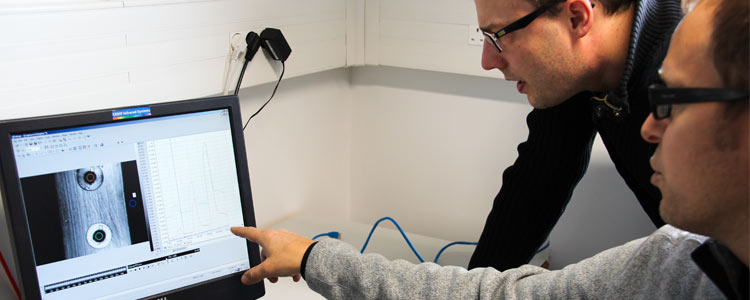A major part of the research carried out at the SYMME laboratory is aimed at improving the quality of manufactured goods. This research is carried out in conjunction with local and national industry.
Supporting the manufacturing industry by producing methods to improve product quality is a priority at both national and regional level. This industry is in fact a major provider of jobs in both production and services: the decline in direct jobs in industry is counterbalanced by their transfer to services to industry, as attested by various economic studies [Élizabeth Rignols, "L'industrie manufacturière de 1970 à 2014"; Insee Première, n° 1592, April 26, 2016], [Anne-Aël Durand, "Au-delà d'Alstom, l'emploi industriel poursuit son déclin en France", LeMonde.fr, September 16, 2016].
The quality of a product obviously depends on its design, and in particular on the choice of materials, but also on mastery of the processes involved in its manufacture. Product/process optimization is an important theme in the Industrial Quality area. Most of the time, this optimization requires the development of new methods of analysis, modeling and adjustment, which are the fundamental contribution of this theme. We would like to remind you that, while the subjects of study are applied, the developments they require are often fundamental and innovative in terms of concepts and methods.
Product quality must be measurable. This is the subject of research conducted under a second theme called "Product Inspection". In the past, our work has focused on product geometry, and many of the laboratory's results are well known to the scientific community in this field. For some years now, we have been working on methods for inspecting the sensory quality of a product (visual and haptic).
The quality of a product cannot be dissociated from the quality of the organization that creates and markets it. Over the past few years, we have been developing a "Process Optimization" theme, focusing on the continuous improvement and operational excellence approaches used in companies. Our work focuses on hitherto little-explored aspects such as Lean Information and Lean ISO. The conceptualization and modeling of business practices, with the aim of making them transferable, are at the heart of this work. This research complements our production system modeling and simulation activities, aimed at innovating industrial organization choices.
Themes
- Thermo-mechanical modeling of materials
- Product-process optimization
- Process optimization
Product inspection
